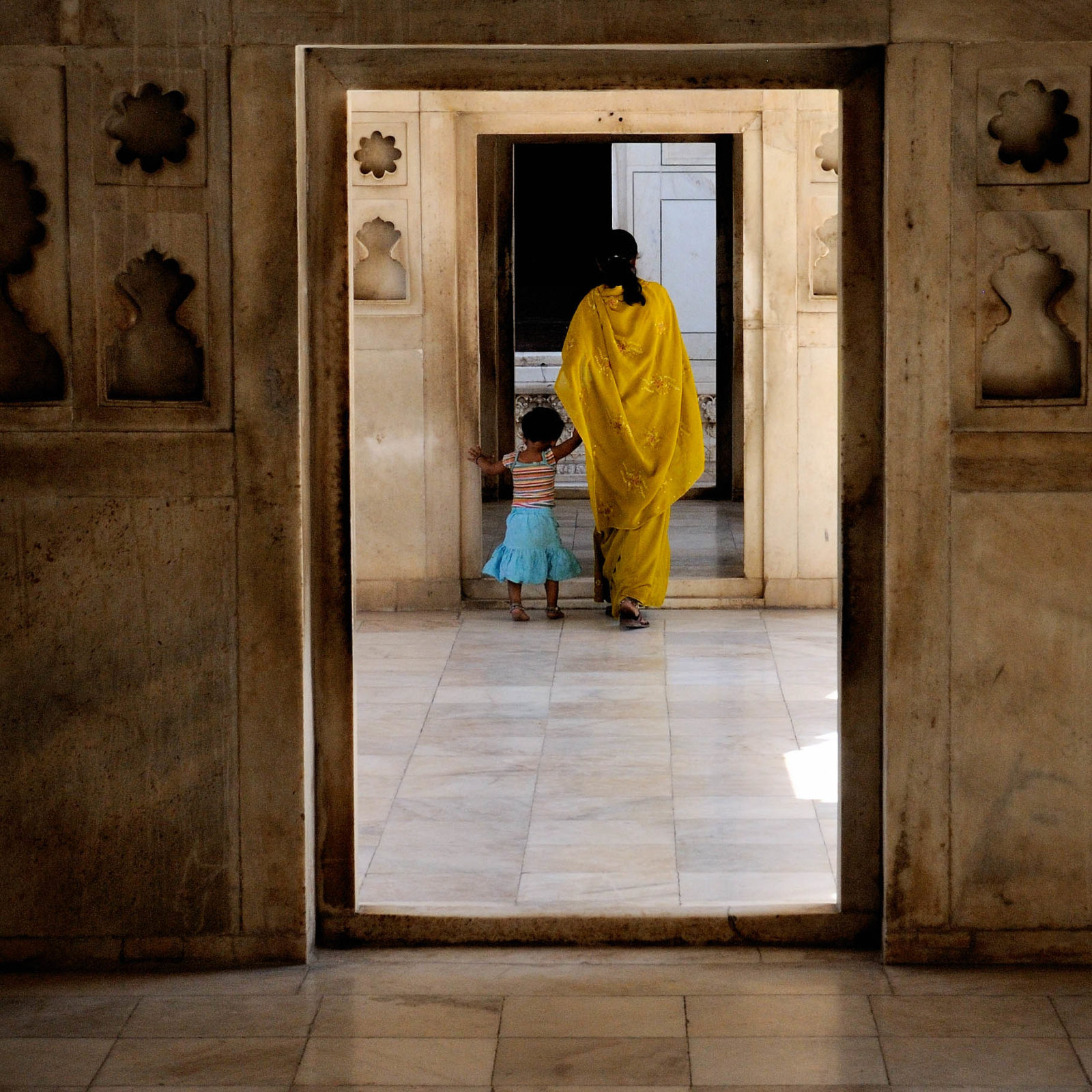
The day the baby arrived, it rained so hard the streets flooded and the taxi Mmuofunanya was riding in was stalled. Mmuofunanya had to transfer to a bus high enough not to be swept by the floods. It moved so slowly, picking its way through the road, gingerly like an ancient creature, the pregnant woman feared she would give birth in the back of a dirty bus which reeked of chicken poop and moimoi. And she would have, as she told anyone who attended to her in the hospital, because it wasn’t even ten minutes after she was taken into the labor room that her baby made its appearance, wrinkly and red like chili pepper. Mmuofunanya’s husband, Eze, was playing golf before the rain started and did not witness the birth of his child. By the time he arrived, his umbrella dripping with rain, the baby had been cleaned, dressed, named and was sleeping face up, her hands spread out like wings on each side of her head.
“You can’t name a child by yourself, it’s not how things are done,” he told Mmuofunanya. He towered over the cot and smiled at his new baby.
Mmuofunanya ignored him and whispered over and over again, Mmiri. Mmiri m. My own water.
“And what a silly name,” he said, picking up the remote control of the TV on the table between Mmuofunanya and Mmiri. “Who names a child water?”
Mmuofunanya didn’t want the TV on but she said nothing. He flipped through channels and flopped into a chair. He mumbled something Mmuofunanya could not catch. Outside, the rain was still falling. The sound of the storm muffled his voice. Mmuofunanya imagined the rain flooding the hospital room and sweeping him out, yet somehow sparing herself and its namesake.
* * *
Mmuofunanya loved playing in the rain as a child. Running in the rain with her mouth open, tongue outstretched to catch the raindrops. Even now, when she dreamed of those days, waking with the smell of wet earth in her nose, she cried for that time now long gone.
Her parents had died the year she graduated from university. One weekend when Mmuofunanya was out of town, a bush burning opposite their house got out of hand. The fire service had no water to quench the fire. Mmuofunanya had heard on the news of the devastation but had not believed it until she returned to what remained of the home she had left only a few days before. Her parents had been playing Monopoly in the living room as she walked out.
For days after, Mmuofunanya wandered the city like a madwoman. Ify, her best friend from university, had trailed her through Enugu, begging her to come home, to take a shower, to return to life. Eventually, Ify had had enough and used policemen to bundle Mmuofunanya into a car and bring her back. She kept Mmuofunanya under lock and key and forced her to shower and eat.
“You smell like a sewer,” she had said to Mmuofunanya. Later, when they spoke about this phase of her life, she told Mmuofunanya she was trying to shock her into wanting her old life back.
“That life is gone,” Mmuofunanya had said, “the fire destroyed it.” It was the same month that she met the man she would marry, Eze.
* * *
In the hospital room Eze looked put out.
Mmuofunanya opened her mouth to tell him to leave but the words stuck in her throat like dry yam. There was a tightness, stretched from her throat to her chest and she coughed to ease it. It didn’t help. Mmiri was still sleeping and if Mmuofunanya concentrated, she could see the baby’s little chest rise and fall, rise and fall, reminding her of the Guinea pig she had as a child.
One day, the carrot she was going to feed the Guinea pig slipped from her hand and landed on its head, knocking it out. Mmuofunanya spent hours on her knees praying for a miracle. She had a hand on the Guinea pig’s chest and each time it rose, she shouted to her father—who had told her the animal was unlikely to make it—that it was still alive. The moment she stopped keeping vigil beside it, when she allowed her father to convince her to take a break for lunch, the animal had died. She was afraid now to look away from Mmiri. With every breath, she thought, She’s alive. She made this whole human. She was proud. The baby, as perfect as Mmuofunanya had dreamed it would be.
Eze stood. “I’m hungry” , he said. He drove straight from the club and he hadn’t eaten. He sounded angry, as if he was blaming Mmuofunanya for choosing today of all days to give birth. Or maybe he was blaming the baby for coming ten days early and scuppering his plans. The rain wasn’t letting up.
“Let me pop down to the restaurant. How long are they going to keep you here for?”
“Four days,” Mmuofunanya said.
The doctor had told her she was free to go home; she had an uncomplicated delivery. She didn’t even have to push for a long time. She mentally prepared for a more difficult time but the labor was short and Mmiri slipped out so quickly that the doctor joked that she had never met a baby so much in a hurry to make its entrance.
“You’re in for a disappointment, little one,” the doctor said, “our world isn’t that great at all, you’ll see.” She then laughed at her own joke.
Mmuofunanya hadn’t thought it particularly funny. What terrible first words for her child to hear. When the doctor placed her on Mmuofunanya’s chest, Mmuofunanya whispered sweet things in her ears. Her daughter would have a life of softness.
She couldn’t go home yet, she told the doctor. She didn’t feel ready yet. Her head hurt. The doctor winked and smiled.
“Fine. I’ll keep you here under observation for another three days and see how you feel then.” Mmuofunanya forgave the doctor then.
The tightness in her chest eased once Eze left the room. Even Mmiri’s eyes fluttered awake as if she’d been shutting them until her father left. Mmuofunanya sidled out of her bed and lifted her baby in one easy movement as if she’d always done this. Why had she been so worried about becoming a mother?
It was more about having a child with Eze. The first year, she knew marrying him was a mistake,but what could she do? She had no family. Eze wasn’t a bad man. He gave in to his anger sometimes. “But what man doesn’t?” Ify had asked her.
“You’re lucky to be married,” Ify said. Ify’s second boyfriend was dragging his feet about marrying her, and Mmuofunanya’s first boyfriend had made an honest woman of her within a year of meeting. “If you weren’t my bestie, I’d be jealous. Eze is the real deal ooh. He’s fine, he has a good job, he loves you. He doesn’t hit you.”
Mmuofunanya conceded, thinking of her father’s anger. Her father could simmer and hurl words that made her mother disappear into her bedroom and cry. One day, her mother had told her that if not for Mmuofunanya, she would have left her father. “His words kill my spirit,” her mother had said. Mmuofunanya, sixteen and wise, had told her mother that if she wanted to leave, she shouldn’t use her daughter as an excuse.
Her impatience with her mother now embarrassed her. She looked at her Mmiri, and she understood how a child could tie a woman down.
Three weeks before she found out she was pregnant, she found a text message on Eze’s phone from “Queen.” Eze’s phone was ringing while he was in the bathroom. Perhaps it was someone from his law firm. When she raised it to answer, she saw multiple messages from “Queen”. And so, she read the first and then the second and then the third and fourth.
The Queen was pregnant.
She missed Eze.
Why was he not responding?
Wasn’t he excited about having a child with her?
And then: Go to hell, Eze. I WILL have MY child. I don’t fucking need you.
Eze hadn’t denied knowing Queen. Yes. He was sorry he hurt Mmuofunanya but why was she snooping anyway? Ijuta isi nkita, iwelu agba ya mee gini? She was the one he married . Queen meant nothing to him. Just a woman he was messing with. What did he care about her bastard child?
Mmuofunanya was her mother’s daughter. She wasn’t raised to shout. Or to demolish things. But she could not stay. So, she went to the bedroom and cried. And then she drove down to Ify’s house. Ify said she could stay with her. Eze might be fine but he wasn’t all that. And he might be wealthy but what was the use of all that money if he went around cheating on Mmuofunanya and getting other women pregnant.
“There might be a position opening up on my campus for another Composition 101 lecturer. You should apply.”
Three weeks later, after days of vomiting every morning, Mmuofunanya did a pregnancy test and watched as two pink lines confirmed what her heart already knew from the first day she ran out of Ify’s kitchen gagging because she couldn’t suddenly stand the smell of okra. When Ify returned from work, Mmuofunanya showed her the test, the pink lines luminescent like led lights.
“This doesn’t change anything,” Mmuofunanya told Ify.
“You don’t even have a job yet. Who will look after you and the baby?”
Mmuofunanya said she would find ways.
“Do you know how many women would pray to be in your position?” Ify had asked her then, rubbing the bunions on her toes she got home from walking to the private university on Independence Lay Out where she taught and earned barely enough to pay her rent. “If I found a man as wealthy as Eze, biko, I’d give up this sufferhead job.”
As a wedding gift, Eze had given Mmuofunanya a Benz. A secondhand one, granted, but it still retained a smell of newness. He paid for her to take driving lessons. Her monthly stipend was three times what Ify earned teaching three days a week. Yes, back then she was lucky. But Queen changed everything. In the three weeks she was gone, Eze had only called her twice. Both times, she told him she was never returning to him.
“Go to Queen and go to hell,” she said, hoping she didn’t sound like one of those melodramatic Nollywood actors she and Eze mocked. How could she go to him now?
“Do you or do you not want the baby?” Ify asked.
Mmuofunanya said she did. It was early days, but she could swear she already felt the flutter of the baby against her womb.
“Then you have no choice,” Ify said.
She would endure, like her mother.
* * *
Mmuofunanya thought back to the day she returned to her husband. How heavy her body had weighed on her, how heavy her heart was. “If I’m doing the right thing, why does it make me so sad?” she asked Ify over the phone that night.
“Just concentrate on the baby you’re carrying,” Ify told her. When Mmuofunanya complained that Eze never apologized for cheating on her, Ify wisely reminded her that Eze had taken her back. “What if he’d chosen Queen? Asked you to go back to where you were coming from? Our men can do that, you know.” Mmuofunanya knew but the knowledge did not console her. “You have to try to forgive and forget. Forget especially.”
Mmuofunanya tried.
All through the pregnancy, she craved pepper. It was as if the baby were sending her a signal. Mmuofunanya would grind pepper—hot tatashe—and mix it in yogurt or spread it across her toast for breakfast. For lunch, she would have jollof hot enough to burn a hole through the roof of her tongue. At night, she ate yam with palm oil thick with pepper. That was the only way the baby in her womb would settle. If she ate anything bland, any food not furious with pepper, the baby squirmed like a worm and Mmuofunanya could not rest. When she told her doctor, she told Mmuofunanya that maybe the baby could see things. Did Mmuofunanya have issues she was bottling up? The doctor smiled to let Mmuofunanya know she was joking but there was an earnestness to her tone that invited Mmuofunanya to open up. She’d already asked why Mmuofunanya’s husband never came with her to her appointments.
“He’s busy with work,” Mmuofunanya said.
“This is the 21st century. No man can ever be too busy to fit in 45 minutes of a prenatal visit,” the doctor had replied.
As the rain fell outside, Mmuofunanya cradled her daughter in her arms. She understood now what the doctor had tried to do. She washed Mmiri over and over in the doctor’s words. She told her, “The world is a hard place but you will survive. You will be strong. And resilient.” She tried not to cry. “You will enter doors fear didn’t let me open.”
On TV, someone on a panel explained how this year’s rainy season had seen more rain than in previous years. They said something about climate change. Environmental responsibility. Mmuofunanya shook her head. She remembered a story from her childhood. Her grandfather—still alive and agile then—had visited the family from the village, complaining of heavy rains that ruined farms. Ala, the earth goddess, he said, must be furious because when she got angry, she tore into the earth with so much rain that nothing could take root.
“And who could blame her,” he said, “no one respects the earth anymore.”
Mmuofunanya began to remember it all. The fire that killed her parents. Droughts. Floods. Climate change. Eze and Queen.
She sat up in bed and bounced the baby on her knees impatiently. Mmiri looked at her and made a face as if to smile. Mmuofunanya smiled, and was still smiling when Eze waltzed back into the room, a toothpick between his teeth. Mmuofunanya stopped smiling. Anger like hot pepper invaded her body.
“You should go,” she told Eze. She hated that her voice was shaking. “Mmiri and I, we don’t want you. Not now. Not ever.”
Eze smirked. He said something about not being in the mood for jokes. Then about her finding her own way home whenever she and the baby were released.
At first, Mmuofunanya could not tell the pounding of her heart apart from that of Eze’s footsteps hitting the tiled floor of the hospital hallway as he walked off. If she ran after him, she could still pretend it was a joke. She could beg. She stood there in the doorway listening to the rain pattering on, Mmiri in her arms. Later, when asked, she would say the rain hypnotized her. She felt immortal, like a goddess. Ala, angry with mortals for making a mess of the world. She heard the whoosh of Ala’s waters cleansing the earth, preparing it for a new, better life.
She held Mmiri close to her and whispered over and over again, Mmiri, may we be fearless.

Chika Unigwe was born in Enugu, Enugu State, Nigeria. She is the author of four novels, including On Black Sisters Street (2009, 2011 Jonathan Cape, UK and Random House NY) and Night Dancer (Jonathan Cape, 2012). Her short stories and essays have appeared in the New York Times, the Guardian, Guernica, Aeon and many other journals. Her works have been translated into several languages. A recipient of several awards and fellowships, she has recently been awarded a teaching position at Brown University, Rhode Island.







